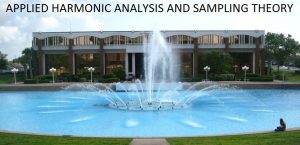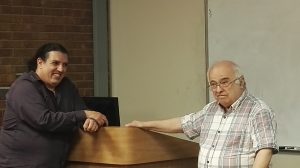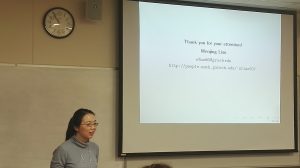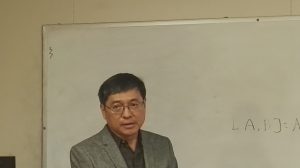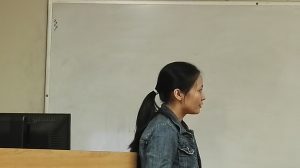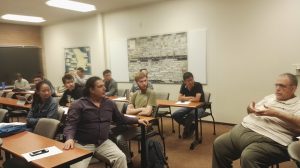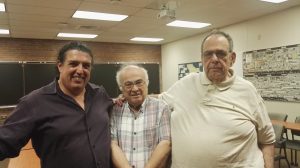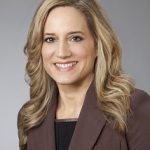- When does the Math graduate program admit new students?
The program admits new doctoral and master students in every fall and spring semester, and new graduate certificate students in every fall, spring and summer semester.
2. What is the minimal academic requirement for the Math graduate program admission?
Students entering the PhD and Master program with regular status are assumed to master undergraduate calculus, differential equations, linear algebra and matrix theory, and maturity in the language of advanced calculus (at the level of MAA 4226).
Students entering the graduate certificate program should have a working knowledge of the context of undergraduate calculus, differential equations, linear algebra and matrix theory, with preference to those taking advanced proof-based mathematics courses.
Students who are not adequately prepared in one or more of those course requirements are highly recommended to select appropriate courses from the undergraduate curriculum to make up such deficiencies. Such courses, unless specially approved, do not count toward the graduate degree.
Students who feel ready to start but not qualified for regular status may be admitted initially to the university in a non-degree-seeking status. Students can try to take core or restricted selective courses listed in the graduate program with credits earned can be transferred on a course-by-course basis up to the approval.
3. Does the program admits students with a baccalaureate degree not major in Mathematics?
You are encouraged to apply for the graduate program. To encourage interdisciplinary research, the UCF math graduate program has open admission policy. Many faculty in the Math department works on interdisciplinary research problems and they have joint applications in other departments, institution and research centers within the university.
4. What are the university requirements for the graduate program admission?
For admission to the university, students must have obtained the equivalent of a baccalaureate or higher degree, prior to the start of the term for which the student is admitted. For more detailed information, please visit http://www.admissions.graduate.ucf.edu/Admission_Requirements/ for domestic applications and http://www.admissions.graduate.ucf.edu/International_Applicants/Admission_Requirements/ for international applications.
5. IS GRE required for the graduate program admission?
Students applying to doctoral programs must submit an official competitive score on the General Tests of the Graduate Record Examination (GRE) (or an official competitive score on the General Management Admission Test [GMAT] as required), or an equivalent score on an equivalent measure approved by the graduate program and the university. GRE results must be less than five years old. Students are not necessary to take the GRE Mathematics Test, however it is recommended.
Students applying to the Master program and the Math Certificate program are not necessary to submit the GRE scores. However, they are highly recommended for the admission in regular degree-seeking status. Students who wish to be considered for university-wide fellowships must submit an official GRE General Test score (or an official GMAT score as required).
6. Are TOFEL/IELTS required for the international applications?
As required by the university, international students must demonstrate their proficiency in the English language. International students are required to submit a score on the Test of English as a Foreign Language (TOEFL) or IELTS before they can be admitted to the university. A computer-based TOEFL score of 220 or 80 on the internet-based TOEFL (or equivalent score on the paper-based test) or 6.5 on the IELTS is required unless otherwise specified by the program.
The exemption for the above language requirement are given to students who are from countries where English is the only official language, those who have earned a degree from a regionally accredited U.S. college or university, or those who have earned a degree from a country where English is the only official language or from a university at which English is the only official language of instruction. For details on your country’s required documents, included academic credentials and equivalency, please visit our Sample Country Requirements Page.
7. Is that enough for the admission if minimal requirements are met?
Meeting minimum UCF admission criteria does not guarantee program admission. Final admission is based on evaluation of the applicant’s abilities, past performance, recommendations, match of the program and faculty expertise to the applicant’s career/academic goals, and the applicant’s potential for completing the degree.
8. How to apply the graduate teaching/graduate assistantship, tuition waiver and university fellowship?
The program offers graduate teaching/research assistantship for new PhD and master students admitted, however most are awarded to students in the PhD program starting from the fall semester. In the application, you should answer “Yes” for the question “Are you interested in an assistantship and/or fellowship? “. The program will review your application to determine whether an graduate teaching/graduate assistantship and tuition waiver will be offered. The program will nominate some students to the University fellowship, please the website https://funding.graduate.ucf.edu/fellowships/ for more information about the fellowship for graduate students.
9. How to apply for the Math graduate program? What is the deadline to apply for?
Admission to the graduate program is formalized by the university upon the recommendation of the Department of Mathematics. However, the college of graduate studies handle all application paperwork. Please follow instructions on the college’s admission website and click here to apply on-line!
For the domestic and international applications, there are different admission deadline, see the graduate catalog for the detailed information. It takes times to complete the application procedure, including official transcript and recommendation letters. Students are advised to apply at least one month early than the deadline listed in the catalog.
